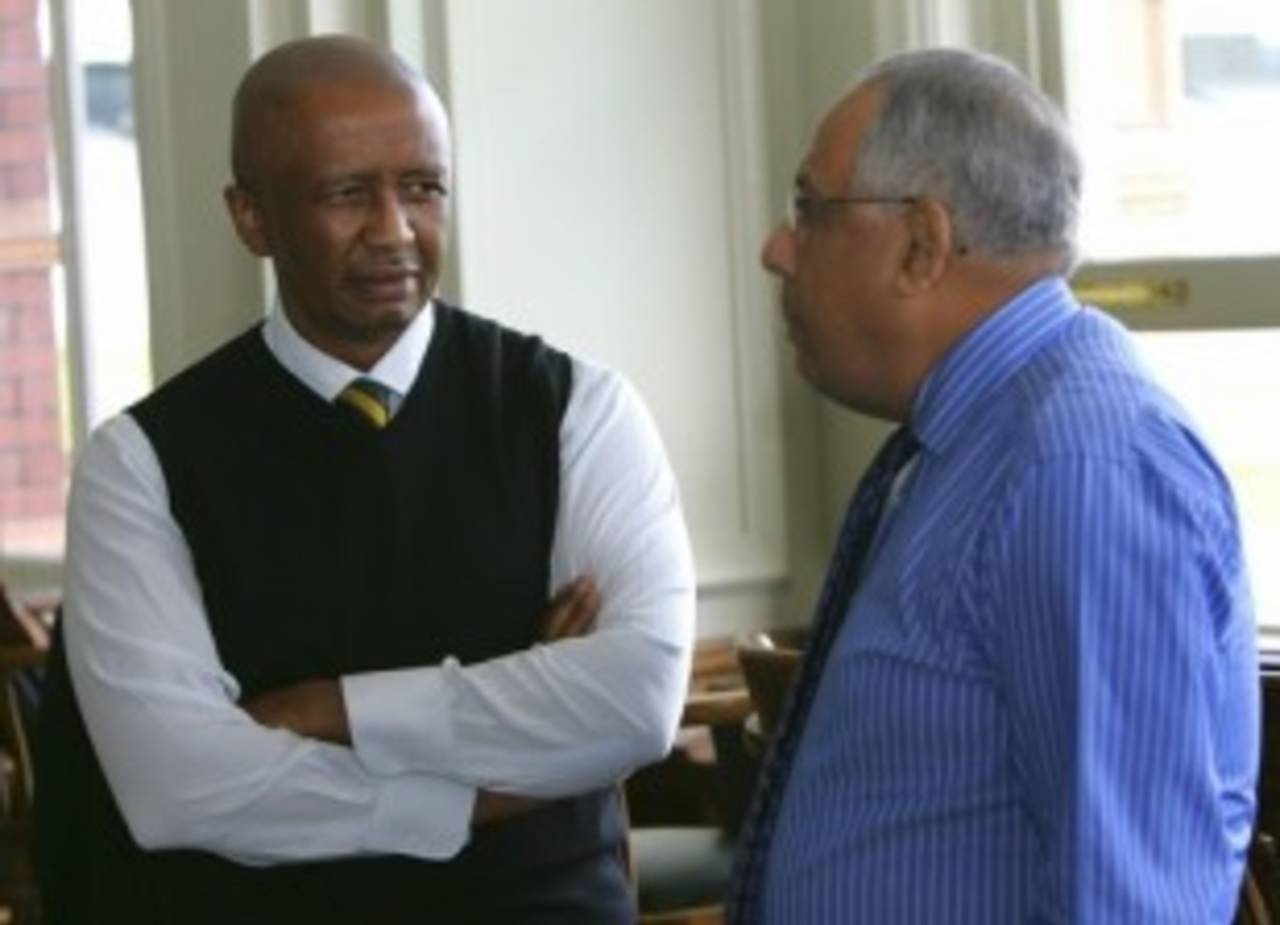Jo'burg thunderstorms shimmer and shake with a brand of violence
that is brutal and beautiful in equal measure. Cricket lovers here are all too well acquainted with the pyrotechnics, which are a summer phenomenon. But an unseasonal
storm of a more vicious nature erupted over the Wanderers this winter. It rent not the sky but the game itself day
and night for several weeks in the form of a dispute between Cricket South Africa (CSA) and the Gauteng Cricket Board (GCB).
The acrimony flew back and forth like windblown gunsmoke, until
mediators were appointed to try and resolve the issue.
It was, this week, and the Wanderers now has its lucrative England fixtures back. "Sanity has prevailed," was the tone of much of the reaction among Johannesburg's chattering classes. But has it?
"We felt as if we had lost control of our stadium and we wanted it back," was how GCB president Barry Skjoldhammer summed up his organisation's grievances in a radio interview.
The IPL certainly did swagger through the country like a padded-up porn star. Trouble is, the men who control the GCB have cast themselves in that role since the days of the Mean Machine, the Transvaal team that swept all before it in the 1970s and 80s. Not surprisingly, they took none too well to the younger, sexier kid strutting on their block. But public opinion was firmly on the side of the GCB during the impasse. Take the England tour away from Jo'burg - who the hell did CSA think they were? In Johannesburg, unlike elsewhere, arrogance is admired.
"People inside cricket know that the people who run the GCB aren't very nice, but people outside cricket don't know that," a CSA official said.
With few exceptions, the Johannesburg media threw their weight behind the GCB. This could be because they were forced to reflect their consumers' concerns. Perish the thought that it's because reporters are welcome to drink free of charge in the Long Room bar at the Wanderers. The stadium also serves perhaps the most sumptuous press-box lunch in the country.
The controversy
took on racial undertones. CSA is a product of democratic South Africa, and as such is a black-led, black-run organisation. The loudest voices in the GCB are white and hark back to
the apartheid era. Those facts stood out like a swastika tattoo on a sun-starved forehead when the GCB was forced to fight on a second front by a group of black clubs, the Concerned Cricket Fraternity (CCF), which highlighted the province's woeful record of producing and contracting quality black players.
The IPL certainly did swagger through the country like a padded-up porn star. Trouble is, the men who control the GCB have cast themselves in that role since the days of the Mean Machine, the Transvaal team that swept all before it in the 1970s and 80s
From a broader perspective, the Wanderers itself stands tall and imposing in one of Johannesburg's most affluent areas. It is a concrete symbol of how little South African cricket has really changed since racial segregation was ended. Sadly, CSA missed a gilt-edged opportunity to take cricket to the masses when it declared the Wanderers stadium-non-grata. Why are South Africans who want to watch international cricket compelled to go to the same arenas that were once graced by all-white teams representing the apartheid state? Almost without exception, these venues are located firmly in what used to be whites-only areas. For most black South Africans, a trip to the cricket remains a journey to another world. Test matches and one-day internationals are played in far from grand
arenas in other parts of the world. Why not a Test match in Soweto?
The GCB tried to keep the IPL and transformation issues separate, and the theory surfaced in pro-GCB quarters that the latter was a smokescreen thrown up by CSA.
Why did the CCF put the boot in when it did? The only valid answer to that question is
another: why has the GCB not made meaningful progress on the transformation front for 15 years? If the issues were indeed separate, why was the news that the GCB had agreed to redraft a flawed constitution that gave disproportionate power to Premier League clubs - which tend to be historically white - and adopt a transformation charter made public at the press conference called to announce that England would play at the Wanderers? The smell of a trade-off was too pungent to ignore.
It wasn't the only compromise in this saga. The Wanderers' return to the roster was preceded by a teleconference involving the stakeholders in South African cricket. "We needed everybody's buy-in, including those provinces who had been awarded matches when the fixtures were changed," said a CSA source. "The guys in Port Elizabeth [which was to have hosted the Test scheduled for Johannesburg] didn't kick up too much of a fuss, but Bloemfontein [which had an ODI fall into its lap and then back out] wasn't happy. They're crying out for international cricket there, and we had to make promises for the future."
Let's hope that's a future based on tolerance. Any offenders should be pointed in the direction of a particular Rolling Stones album, Let It Bleed. Specifically side two, track nine. It's called "You Can't Always Get What You Want."
Telford Vice is a freelance cricket writer in South Africa
